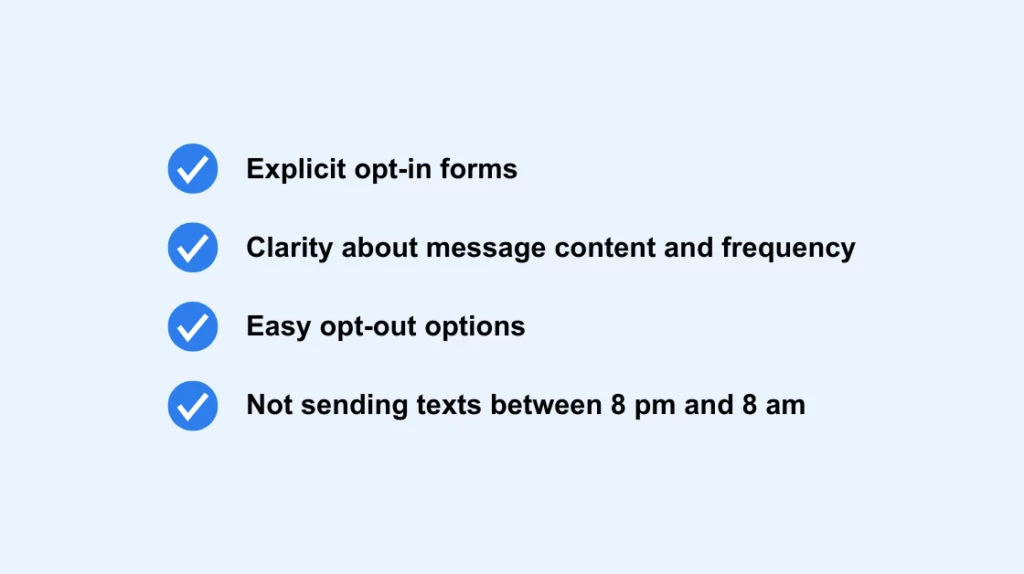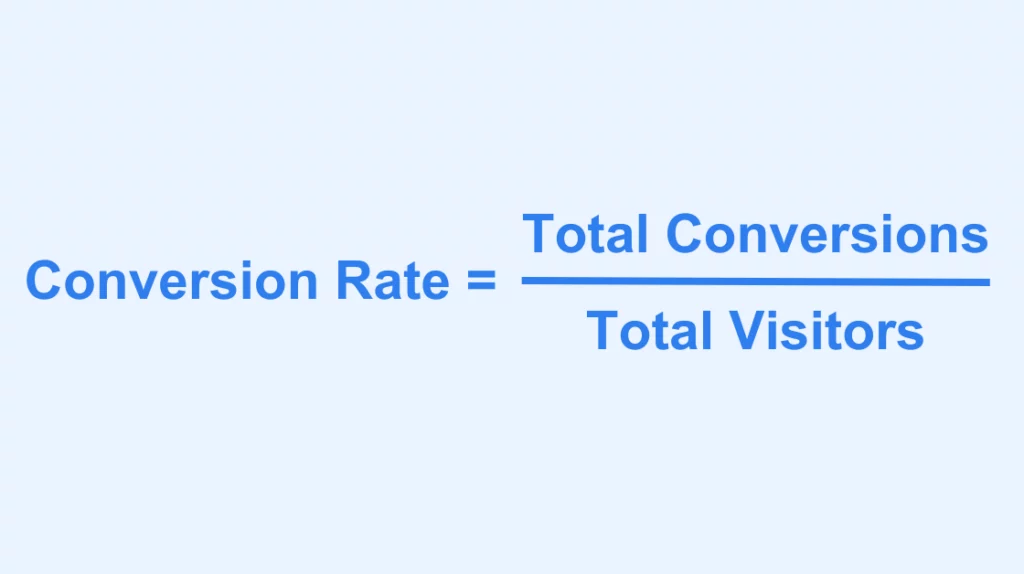SMS Marketing for Hotels: The Complete 2025 Guide
This guide delves into the nuances of SMS marketing for hotels, offering best practices, campaign ideas, and compliance considerations.
Unlock the power of SMS marketing with our playbook. Discover insights, innovative strategies, and tips to engage customers and drive conversions.

The huge increase in mobile phone usage has transformed the marketing landscape. With billions of people worldwide constantly on their smartphones, businesses have a direct and effective way to connect with their target audience right at their fingertips. This major shift towards mobile-focused consumer behavior has pushed marketers to reconsider traditional strategies and develop new approaches that resonate with current digital trends.
SMS marketing stands out as a key component of today’s marketing strategies, leveraging the simplicity of text messaging. Providing instant communication, high engagement rates, and extensive reach, text message marketing has become an essential tool for businesses aiming to establish meaningful relationships with customers, boost interaction, and drive growth in the digital era.
SMS marketing involves using text messages to send promotional content, updates, and notifications directly to customers’ phones.
When it comes to marketing, SMS stands out for its ease of access on all mobile phones, offering a direct and personal way to connect with customers. Unlike email or social media ads that compete for attention in crowded spaces, SMS marketing’s simplicity and intimacy make it a unique and effective approach.
A common question is if text message marketing is legal in the USA, and it is! However, you need to follow the regulations around it.
SMS marketing requires businesses to follow rules regarding consumer consent. In the U.S., the Telephone Consumer Protection Act (TCPA) requires companies to get explicit permission before sending promotional messages.
Similar laws in other countries focus on protecting consumer rights and privacy, guiding businesses on ethical marketing practices. Always include:

In addition, companies should keep records of opt-in confirmations to not only protect themselves legally but also strengthen the credibility and trustworthiness of their communications.
As text message marketing advances, these practices are key to ensuring that companies can utilize the benefits of SMS marketing while upholding the highest standards of legal and ethical responsibility.
Text message campaigns act as a key driver for enhancing customer engagement, especially for small and medium-sized enterprises (SMEs) looking to establish meaningful connections with their audience. Its foundation lies in its immediate reach and impressive open rates that surpass those of email marketing by far.
Consider these significant advantages:
Starting an SMS marketing campaign begins with you creating clearly defined objectives. The goal could be to introduce a new product, share important announcements, or boost customer engagement levels, but you need to be clear on the job you want a campaign to do for you. This shapes the overall strategy, message creation, and evaluation method, ensuring that every decision aligns with the desired outcomes.
Once the campaign’s goals are defined, segmenting the audience is the next key step to having an effective campaign. This involves grouping potential recipients based on factors like demographics, past purchases, or levels of engagement to ensure that the right messages reach the right people.

Customizing messages for different segments increases their relevance and personal touch, significantly boosting engagement rates. By addressing recipients’ preferences and needs directly, your SMS marketing efforts become more impactful and less intrusive, striking a balance crucial for maintaining a positive relationship with your customer base.
Developing a strong opt-in strategy is another key element in launching an SMS marketing campaign successfully. This ensures compliance with legal regulations while building your database of enthusiastic and interested subscribers.
You should be clear about what subscribers can expect when signing up, including details about message types and frequency.
This fosters trust and establishes clear expectations for future interactions. Combined with an easy opt-out option, this approach respects consumers’ autonomy and keeps your marketing list healthy by focusing on permission-based communication.
Lastly, planning your message content thoughtfully and automating parts of the campaign are vital steps that breathe life into your overall strategy.
Crafting concise, clear, and compelling messages with a strong call to action encourages immediate responses from recipients.
Use scheduling and automation tools to deliver these messages at the best time for maximum impact. Try Sakari’s easy-to-use SMS platform for scheduling and testing your text campaigns.
By planning your content strategically, and using automation to improve consistency and timeliness, you can improve engagement and drive conversions to reach those critical objectives.
To create a creative SMS copy you need to be informative and persuasive to push people to take action. Adding personal touches like a first name enhances this impact by making recipients feel personally addressed, increasing the chances of engagement and conversion.
For example, hosting contests and giveaways through text messages provide a fun way to connect with customers, encouraging them to join in and creating a sense of community and excitement around your brand.
Based on your industry and customer norms, test the best time to send a text message so people will give it their undivided attention.
Evaluate the performance of each campaign carefully, and monitor key metrics like click-through rates (did you engage someone?) and opt-outs (did you annoy them?).
Analyzing customer behavior to determine when is the best time to send SMS messages can have a significant impact on engagement levels. For example, a restaurant might discover that late afternoons on weekdays are great for promoting dinner specials, while a retail store could prefer weekend mornings when customers tend to plan their shopping trips.
Adapting the timing of your SMS campaigns based on these insights ensures that your messages reach your audience when they are most open to them, increasing their impact and driving concrete results. Make notes of what you learn, and adjust the next campaign accordingly.
Trying different strategies in your text message marketing campaigns will help you understand what your audience is interested in.
Each tactic takes advantage of the immediacy and personal touch of SMS messages, ensuring that the messages are relevant and interesting to the recipient. Adjust these to fit your market and customer, and experiment with alternatives that might be right for your brand and its tribe.

Integrating SMS into your overall marketing strategy amplifies the effectiveness of your campaigns, creating a seamless and unified customer experience. Here are 3 ways to do so:
This two-pronged approach guarantees that messages are not only noticed but also acted upon, enhancing customer interaction.
By showcasing exclusive offers solely available through SMS on social media platforms, you motivate new subscribers and connect your online marketing endeavors with where your audience already spends their time.
From reminders about event commencement times to live updates and special post-event deals, text messages can heighten the immediacy and personal touch of event communications. This real-time interaction promotes a feeling of inclusiveness and immediacy, encouraging increased engagement and participation during and after events.
By smoothly integrating SMS with other aspects of your marketing strategy, you develop a comprehensive communication approach that resonates strongly with your audience, boosting both engagement and conversions.
Building an SMS marketing list thoughtfully is essential for sustained success and compliance. Using website pop-ups and checkout opt-ins effectively grabs the interest of active website visitors, giving them a simple way to receive direct updates and special offers via text messages.
This approach, combined with promoting on social media platforms broadens your potential audience reach, inviting more people to join your SMS community. Offering clear value through exclusive content, discounts, or early access to products or sales can motivate potential subscribers to say ‘yes,’ transforming casual visitors into engaged members.
Securing customer opt-ins also relies on transparent communication. Clearly explaining what subscribers are signing up for—including the type of content they will receive and how often they will get messages builds trust from the start.
By taking proactive steps to manage your contact list using these techniques, you can cultivate a growing and engaged audience that is receptive to your messages, setting the stage for a successful SMS marketing campaign.
Choosing the right software and tools is crucial for a successful SMS marketing strategy. It’s important to have automation features that allow you to schedule and send messages without manual effort, ensuring that your audience receives them at the best times.
Integration capabilities are also key, so SMS marketing solutions can seamlessly integrate with your CRM systems and email marketing tools, creating a cohesive marketing approach across various channels.
Analytics tools offer valuable insights into campaign performance, subscriber engagement, and message impact, helping you refine and optimize your strategies.
Special advantages, such as reaching a global audience while following local regulations and analyzing real-time data, empower businesses to expand their marketing efforts worldwide while making informed decisions based on campaign results.
For companies looking to enhance their SMS marketing campaigns, Sakari offers the tools and flexibility needed to create impactful, data-focused campaigns that resonate with audiences around the globe.
Measuring the return on investment (ROI) for SMS marketing campaigns is crucial to understanding their effectiveness and optimizing future strategies.
This involves not just tracking the immediate outcomes but also understanding how SMS contributes to broader marketing objectives.



Sakari’s platform provides advanced analytics and tracking capabilities, enabling you to measure your SMS marketing ROI accurately. By leveraging Sakari’s tools, you can:
SMS marketing has become a crucial tool for businesses seeking direct engagement with their audience. Its extensive reach and immediate impact make it a valuable tool, providing opportunities for personalized interactions that set it apart from other marketing channels.
Embrace the versatility and effectiveness of SMS marketing with Sakari’s 14-day free trial so you can test how powerful Sakari and text messaging can be for driving your business forward.

Adam is the Co-Founder of Sakari. Sakari is a business SMS service for sending text message alerts, reminders, events and notifications to customers and employees, wherever they are. Manage your entire business messaging in one location, with unlimited users, branch accounts and integration with over 1,300 applications.
Your email address will not be published
This guide delves into the nuances of SMS marketing for hotels, offering best practices, campaign ideas, and compliance considerations.
Automation has changed the modern-day workplace. Discover why businesses are implementing SMS automation as part of their marketing and sales...
The breakthrough that separates successful HubSpot drip SMS implementation from failed attempts lies in understanding that SMS isn't just another...
With our 14-day free trial, you can dive in and explore all these features, with no commitment.